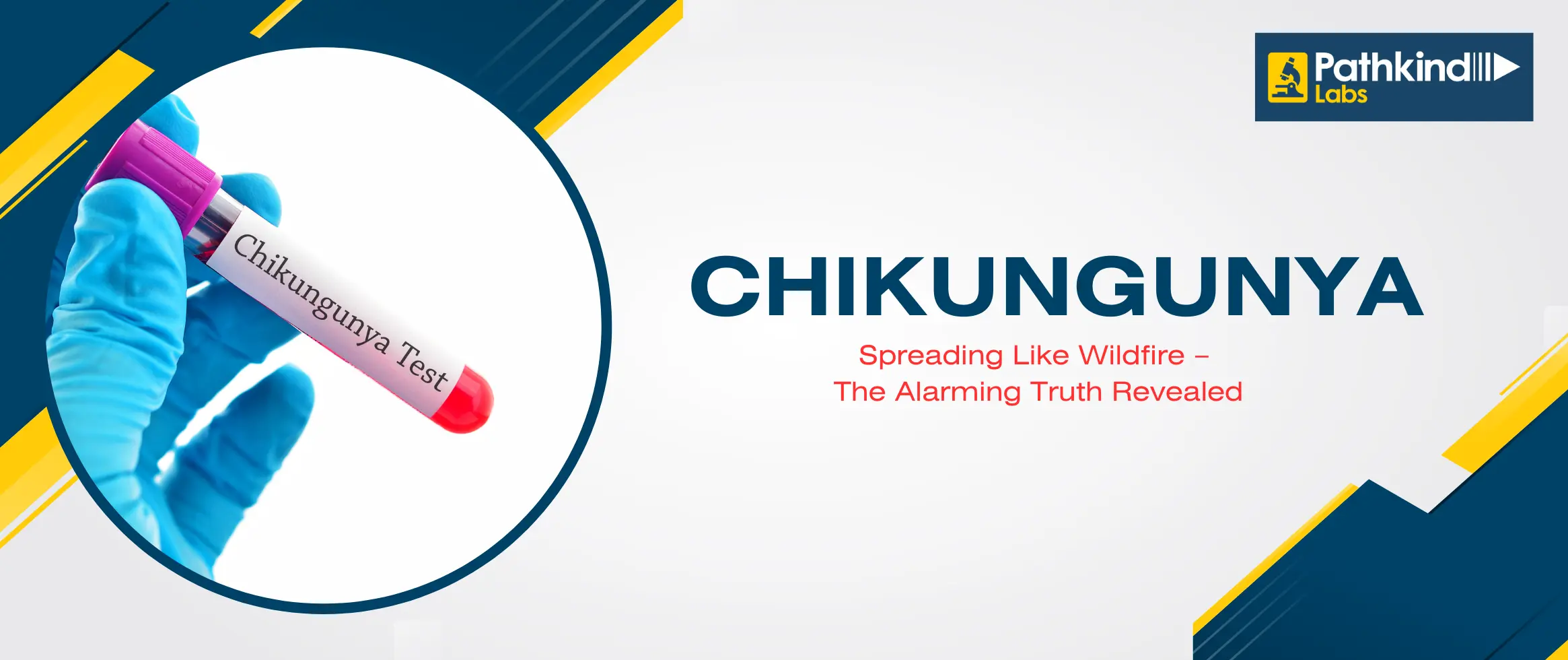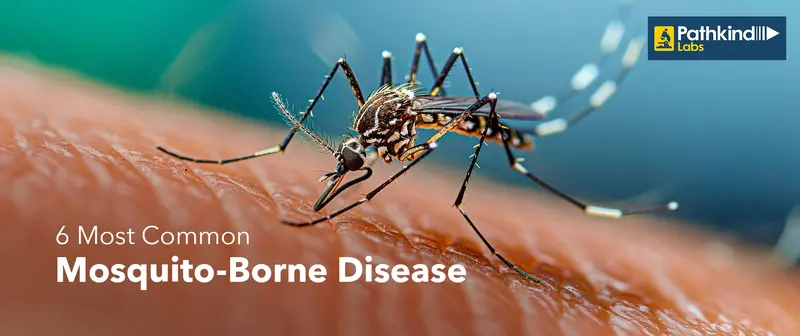Chikungunya IgM Antibody

Gender for
Male, Female
No special preparation required

Sample Type
Serum
Test Overview
Chikungunya IgM Antibody Test aids in the diagnosis of chikungunya infection. It can be used to detect both past and recent chikungunya infections. This test should be ordered a minimum of five days after you start exhibiting the symptoms of this disease. Test results are available within four to fifteen days of the sample collection.(CHECK It’s a Same day reporting) Chikungunya is a viral disease that is spread by mosquito bites. Mosquitoes become infected with chikungunya when they feed on an individual already infected with the virus. Infected mosquitoes spread the virus to others through bites. Joint pain and fever are the most common symptoms of chikungunya.

 NABL approved
NABL approved Labs
 Most Trusted by
Most Trusted by Doctors
 Accuracy &
Accuracy & timely reporting
 Widest Range
Widest Range of Tests
Test Details
Frequently asked questions
Chikungunya infection can cause severe complications in pregnant women. If a pregnant woman has been exposed to the chikungunya virus and exhibits the symptoms of this disease, they should undergo the Chikungunya IgM Antibody Test. As per a few studies, chikungunya can get transferred to the fetus from the mother. In such cases, there can be serious complications such as transplacental transmission before birth, stillbirths, growth restriction, congenital malformations, and preterm delivery. Early detection of the infection can help avoid any dangerous consequences to the mother and the fetus.
Positive Chikungunya IgM Antibody Test results indicate chikungunya infection. The infection can be recent or past. To confirm the diagnosis, you may be advised to undergo repeat testing in five to ten days. If both IgG and IgM antibodies are positive, it means you have recent exposure to the chikungunya virus and need to be treated for the symptoms. If IgG is positive and IgM is negative, the results may suggest that you have developed antibodies against the Chikungunya virus and had an infection in the past. Depending on the results, your healthcare provider will start the correct treatment.
Chikungunya IgM Antibody Test is a simple blood test. It does not have major complications or risks. Minor risks that a few people can encounter during this test include hematoma, lightheadedness or weakness, bruising near the blood draw area, and infection at the puncture site. In rare cases, the technician may have to make multiple punctures to locate your vein. If these symptoms do not resolve on their own, you must inform your healthcare provider.
The chikungunya IgM antibody starts appearing in your bloodstream 3-4 days after exposure to the virus. The chikungunya- IgM test is performed after 1 week after the onset of the chikungunya symptoms to ensure that the results are correct. Also, upon complete treatment of the chikungunya disease, the IgM antibodies stay in your bloodstream for three to four months, whereas the IgG antibodies can be detected for years.
Chikungunya and dengue fever are insect-borne viral diseases that can lead to morbidity. Both these infections are spread by the Aedes mosquito. People often confuse chikungunya and dengue as both present similar clinical symptoms and circulate in the common area of the body. However, there are a few symptoms that can help differentiate between them. In chikungunya, you typically experience high fever, skin rashes, lymphopenia, and severe joint pain. People infected with dengue exhibit neutropenia (lymphocytosis is usually seen with reactive lymphocytes on your blood peripheral smear) , bleeding, and thrombocytopenia.
The best way to avoid chikungunya is by limiting your exposure to mosquitos. While traveling to places where chikungunya is prevalent, carry mosquito coils, repellents, and insecticide vaporizers and wear clothes that minimize skin exposure. You should also try to stay indoors during the late afternoon and early morning, sleep under a mosquito net, avoid traveling to countries experiencing chikungunya outbreaks, and use air conditioning. You should also ensure that there is no stagnant water source in your home or your locality, as it can become a breeding site for mosquitos.
















